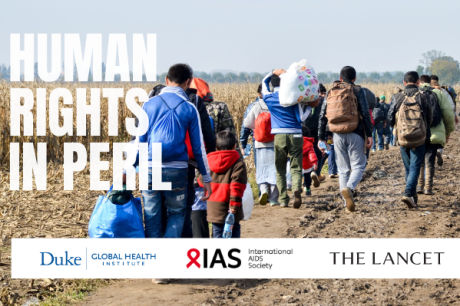
Faculdade Ingá, the university that I am collaborating with during my fieldwork
Published June 15, 2015, last updated on April 7, 2020 under Voices of DGHI
It’s hard to believe that I’ve been in Brazil for five weeks. Probably the only thing that has gone by quickly in the field so far is the time. I don’t know how that is because since I’ve gotten here, everything has moved at a slower pace.
I used to think that slower always was a bad thing. Sure, there’s that story we all know about the tortoise and the hare, but I always thought the moral of that was more about the dangers of pride and the need to move at a steady, consistent pace rather than the importance of actually moving slowly.
Yet I have been forced to move at a slower pace from day one in Maringá. One of the first things I learned is that in Brazil, you stop to take a lunch break. This simple act was initially startling, to say the least. The last time I consistently took a real-life lunch break was seven years ago in high school, and even then I often was attending some sort of meeting for half of the 30-minute lunch. It isn’t just taking a break for lunch, though, that slows daily life down. Dinners take longer too – I recently attended a birthday dinner that lasted from 8 pm – 3 am.
At first I have to admit that these midday breaks and longer engagements were hard for me. I need to work. How can we possibly get everything done if we’re taking an hour for lunch or spending the entire night at dinner? And then I realized something ...
Everything is getting done, and it’s turning out really well.
Is my project on the pace I envisioned it would be? No. But let’s be honest – I’m a baby researcher who has never gone through the process of creating a project and implementing it in the field until now. In particular, training and pilot testing moved slower than I anticipated, but as a result my project is stronger and better than it was five weeks ago.
And what’s more, it’s influenced by conversations I have not just during meetings, but also during those long dinners and daily lunches. When you share meals, you talk. People want to know why I’m here, and when I tell them I’m working on a project looking at care-seeking behavior and injury, they have stories, questions, and opinions. My project has been modified to better reflect the needs of the citizens of Maringá, which is one of the most important aspects of research.
And what’s more, I’ve learned that slower isn’t synonymous with lazy or poor quality. In fact, moving a little more slowly hasn’t changed my work ethic, but instead allows my hard work to be higher quality.
Looking to the future and making plans is an imperative part of research. But we shouldn’t forget to slow down and take time to enjoy the wonders of “now.” Of the many things I am learning in Brazil, this may be one of the lessons I value the most. Brazilians’ emphasis on the present has allowed me to work on my fieldwork project while also spending time each day enjoying great food, building friendships, and taking lots of walk through the beautiful Parque do Ingá. These moments are the things that keep me happy, healthy, and motivated during my fieldwork.


